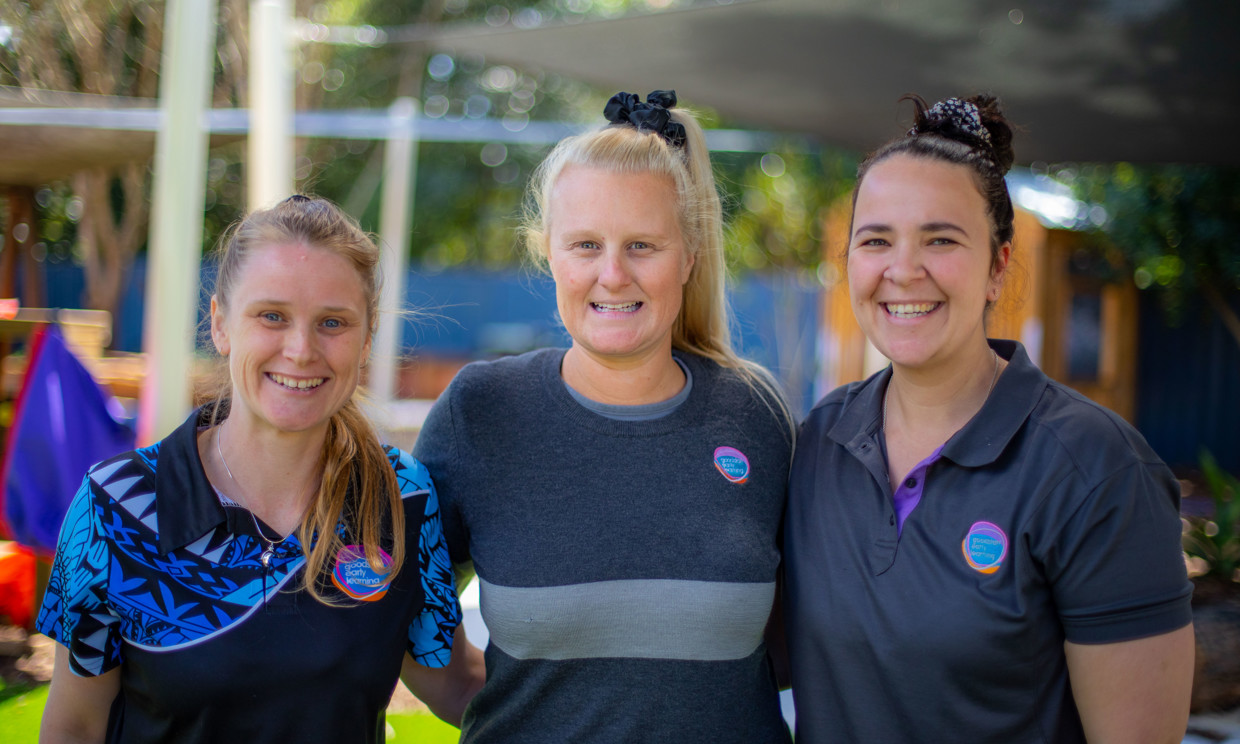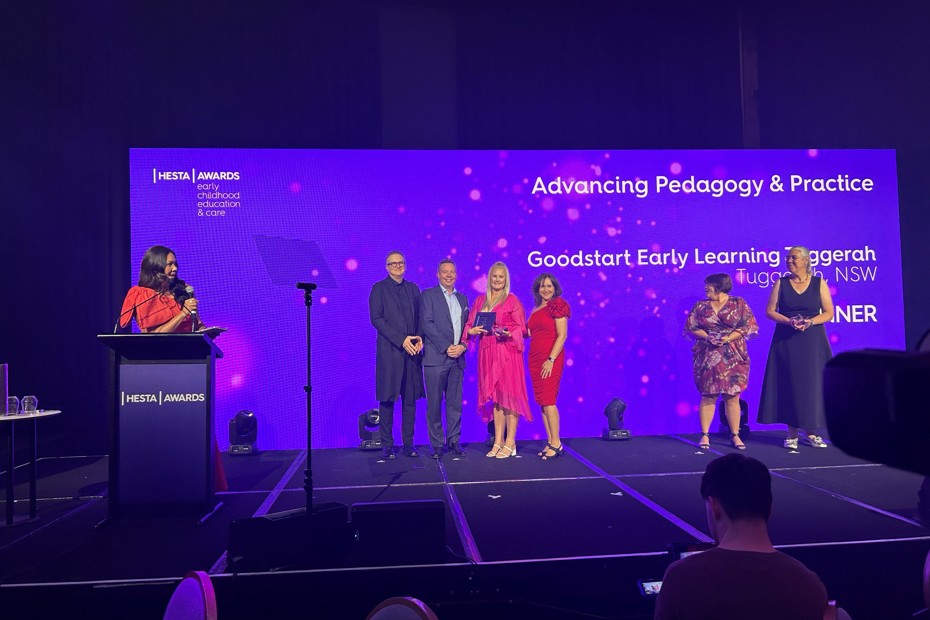Goodstart is proud to celebrate Goodstart Tuggerah winning the Advancing Pedagogy and Practice Award at the 2024 Early Childhood Education & Care Awards.
The team were recognised at a gala dinner held in Brisbane last week, for their innovative ‘Interability’ program, developed in collaboration with local disability service AMPEY, which fosters inclusivity, social skills, and empathy through interactions between neurodiverse individuals and children.
Goodstart Early Learning Tuggerah’s Centre Director, Tearne Martin, credited the whole team at Goodstart Tuggerah and AMPEY for winning the HESTA award.
“This award is great recognition for our team and the hard work that has resulted knowing our children and families are taking active steps to forge strong partnerships with our community to improve outcomes for children and the wider community,” Tearne said.
“It really cements how through working in authentic ways with others we can create unique programs that enhance child outcomes and inspire others within the wider sector.”
Based on the Central Coast of New South Wales, with a dedicated team of 36 educators caring for 155 children (across the week), Goodstart Tuggerah prioritise inclusion in all aspects of their service. The team draw inspiration from the diverse backgrounds of children and families alongside the collective critical thinking and reflections from educators.
The award-winning Interability program brings together children and neurodiverse individuals, fostering mutual learning, inclusivity, and meaningful relationships – which has delivered remarkable outcomes and enhanced learning experiences.
Collaboration with AMPEY helped build a shared understanding of neurodiversity and develop strategies for inclusive environments. The program has created spaces that accommodate and support both children and neurodivergent individuals. Actively involving children, families, educators, and neurodivergent participants was crucial.
This innovative approach is pioneering in early childhood settings, typically focused on intergenerational programs. By integrating neurodiverse individuals into educational experiences, the team emphasise the value of diverse perspectives and abilities, highlighting the importance of environments where everyone can learn from each other.
“The Interability program fosters meaningful interactions between neurodiverse individuals and children, creating a safe and inclusive space for mutual growth and learning,” she said.
The Interability program has enhanced outcomes for children and families - creating a more inclusive, supportive, and enriching environment where a true sense of belonging and equity is upheld.
Tearne further highlighted how the centre team embraces a collaborative approach to pedagogy and practice.
“We prioritise building strong connections with children, families, educators, and the wider community, allowing us to discover shared values and aspirations,” she said.
“By fostering an environment where everyone feels safe to take risks and engage in critical reflection, we can tailor our practices to meet the unique needs of each individual.
“This commitment to understanding and inclusivity not only supports children's development but also strengthens our entire community, ensuring that we work together towards common goals and success.”
Looking to the future, the Tearne and the team are keen to invest their prize money ($10,000) back into the program to continue to grow and improve outcomes for the children and families in their centre.
“It is a great privilege to be awarded this money and will afford us the ability to strengthen our program further through providing shared professional development opportunities with not only our team but the team at AMPEY,” she said
“In addition, and most importantly it can be fed directly back into the program in the form of more outer service community visits and providing resources that will ensure the inclusion of the children and our neurodivergent participants.”



